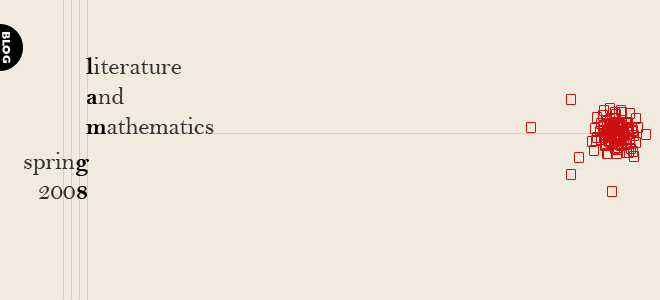Since we have at least 3 motorcyclists in the class, I think it's appropriate to look at a passage from the venerable Zen and the Art of Motorcycle Maintenance, in which Robert Pirsig explores Henri Poincare's views on axiomatic systems:
To solve the problem of what is mathematical truth, Poincare said, we should first ask ourselves what is the nature of geometric axioms. Are they synthetic a priori judgements, as Kant said? That is, do they exist as a fixed part of man's consciousness, independently of experience and uncreated by experience? Poincare thought not. They would then impose themselves upon us with such force that we couldn't conceive the contrary proposition, or build upon it a theoretic edifice. There would be no non-Euclidian geometry.
Poincare concluded that the axioms of geometry are conventions, our choice among all possible conventions is guided by experimental facts, but it remains free and is limited only by the necessity of avoiding all contradiction.
Max from Pi seemed to take a similar view. He regularly discarded or changed his accepted axioms according to his situation. But at the same time, he made sure to remain consistent with his axioms, and the result was huge leaps in his understanding.

No comments:
Post a Comment